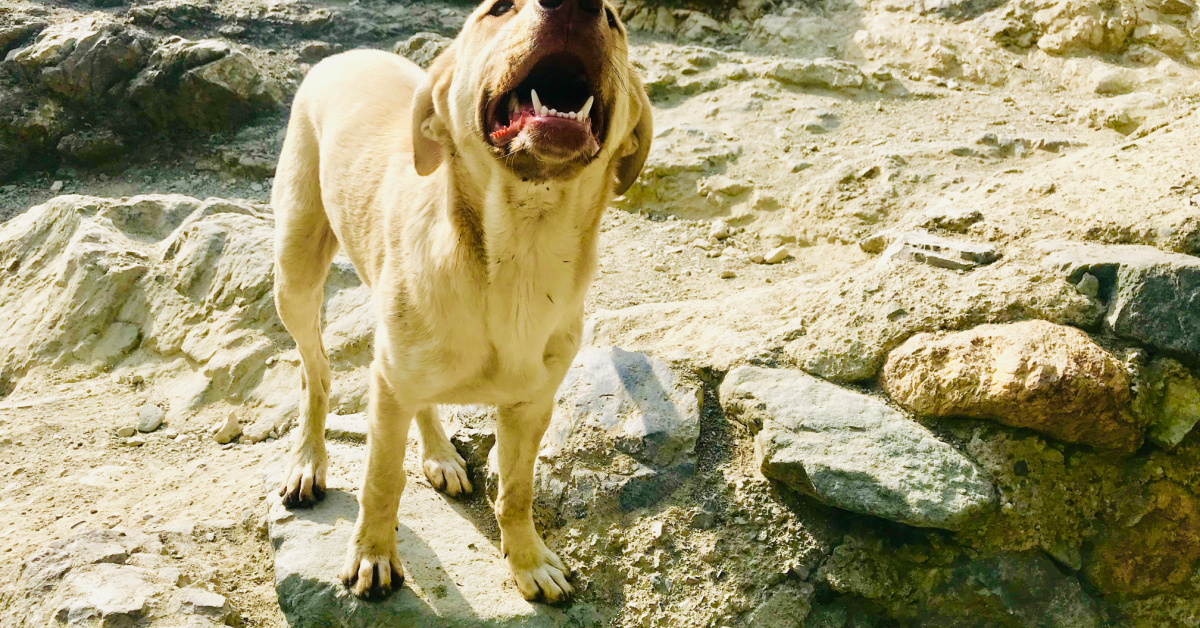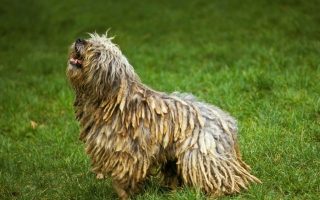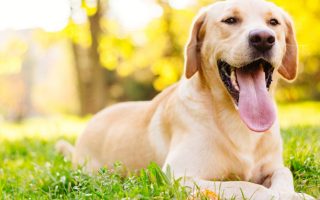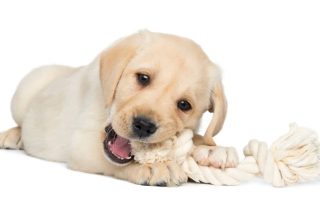For their small sizes and at young ages, puppies at about 3 months or 9 to 10 weeks often seen as cute, cuddly, and endearing. So, when most Labrador owners see their puppy growling and biting in the first few months, they usually get shocked.
This aggressiveness, however, doesn’t mean that your Lab puppy is going to grow up aggressive and growl at everyone all the time.
Puppy growling and biting at this age is just a phase. Most of the time, it will eventually pass when they get older.
If you are a first-time parent to a Labrador puppy that keeps growling and biting. You may feel intimidated when your puppy growls and snaps at you.
But, it is natural for puppies to bite and play, and many behaviors that young Lab puppies exhibit are actually just part of their youth.
They will like biting people and things, with some puppies biting more than others.
But while a truly aggressive puppy biting and growling is a rare thing, it is not impossible.
To help you understand how to stop a puppy from growling and biting. This article will talk more about how to tell if your Lab puppy aggression is just a passing thing or not.
What makes a dog suddenly aggressive?
There are many factors that can make a normally gentle Labrador turn aggressive.
However, sometimes, some of the behaviors that Lab puppies normally exhibit make their pet owners think of them as signs that their dog is dangerous.
Here are some normal Labrador behaviors that many pet owners take to be aggressive puppy signs:
1. Biting
It’s not uncommon for young puppies to have a strong playing style that most people would consider as aggressive.
However, biting is actually pretty normal in most puppies.
They will bite their beds, their bowls; sometimes, they will even playfully bite their owners.
While this behavior should not be tolerated and should still be corrected. It is a perfectly normal behavior in a Lab puppy.
Biting things is one of the ways that puppies learn that they can get attention. So, they may resort to biting you a bit to initiate play or if they want something.
2. Growling
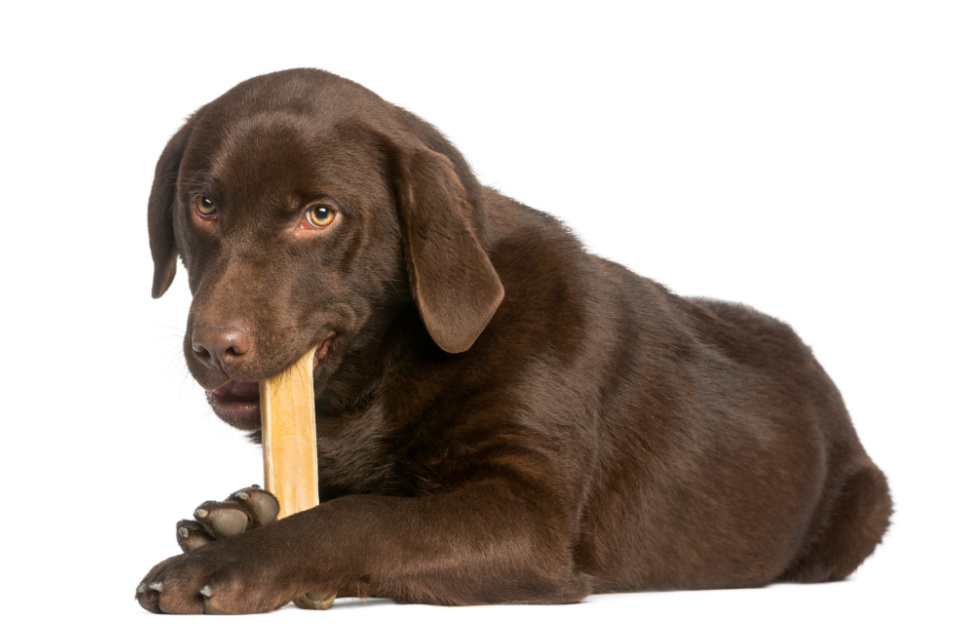
Most growling behavior is something that you don’t need to worry about. Small puppies may growl whenever they play with you or tug at you to get your attention.
It is likely not a cause for alarm, especially when they are not causing any pain and seem to be just exhibiting playful but overexcited behavior.
However, growling is something that you should watch out for in truly aggressive puppies.
3. Pouncing
It is also normal for your Labrador puppy to pounce on you when they’re feeling playful. It does not necessarily mean that they intend it to be aggressive.
This is especially true when they are just eager and excited to play around with you.
4. Resource guarding
Resource guarding is essentially being very protective of things, especially food.
Of course, it’s normal to see this as long as it is not excessive.
But if your Labrador puppy growls or acts aggressively when someone comes near their food, it could be another sign of serious behavior issues. This is especially true when they do this frequently.
Usually, if your Lab puppy’s behavior is unusual, but it does not happen all the time, you might be able to brush it off.
But when they exhibit unnatural and aggressive behaviors with regularity, that is when you should intervene.
When Labrador exhibits alarming behavior
Despite the fact that most of the time, Labrador puppies are not truly aggressive, there are also hallmark signs that their behavior is unusual.
These may include your puppy growling when picked up all of a sudden or them showing puppy aggression towards other dogs.
In these cases, intervention with a behavioral specialist is usually necessary.
The difference between normal behavior and alarming behavior in Lab puppies is usually fear.
In most cases, your dog may exhibit these particular behaviors because they scared of the subject or fear it.
What if my puppy starts growling and biting at strangers?
First of all, puppies are naturally curious little things. Whenever you go out for walks, they may find something that captures their interest and follow or play with it.
But, when they bark or lunge at strangers or things for a negative reason, that becomes alarming behavior.
Puppies should not react in a negative way to curiosity. They should not be scared to the point of aggressiveness whenever a foreign person or object is near.
In a young Lab puppy of about 3 months or 10 weeks, this is a major concern.
While it is perfectly normal for them to be curious about things, they should not resort to thrashing to get away from or being aggressive towards things that are strange to them.
Aggressive puppy signs
One thing that you notice when a Lab puppy is no longer just playing is when their body language becomes aggressive and rigid. Instead of a fun, playful aura, your Lab puppy may exhibit tense behavior.
Their body language is something that you should pay close attention to because it says a lot about whether they are being truly aggressive or just playing around.
Often, this difference draws the line between what is commonly perceived as aggressive and what is truly a sign of puppy dominance and aggression. Aggressiveness in many puppies is characterized by stillness, a hard expression on their face, and low growling.
With any of these signs, the best thing to do would be to call a behavioral specialist so you can find a way to intervene with aggressive puppy behavior.
As a responsible pet owner and citizen, you should make sure that your Lab will not cause harm to others intentionally.
According to this study on canine aggression, aggressive behavior in dogs can cause social disruption.
But, the good side of it is that most pet owners are willing to take action to correct these behaviors through different training methods.
What to do about a Labrador Retriever puppy growling and biting
Even if you believe that your puppy exhibits completely normal Labrador behavior, it still should not be tolerated.
You don’t want your Lab to grow up always biting since they may accidentally hurt themselves and others.
Fortunately, in most cases, the puppy grows out of this stage fairly well.
With enough training and persistence, most puppies will no longer like biting and nipping so much by the time they are about 6 months old.
Each puppy is different, but the following important tips are good starting points:
1. Do not punish them.
Punishing your Labrador will probably do more harm than good.
Punishment has long since been disputed as an inefficient mode of training. These days, positive reinforcement is the way to go.
Punishing your Labrador Retriever for their behavior will only repress these aggressive behaviors and make them fearful of you.
As a pet owner, what you want to do is to create a healthy relationship with your Lab that does not involve fear. After all, they need to be loved and cared for in order to grow well.
2. Ignore your Labrador puppy growling and biting.
Another thing you can do is to teach your Lab puppy that they won’t get anywhere by trying to get your attention through nipping or biting.
If they do this, you can remove yourself from the area completely so that they won’t be able to bother you.
If you respond to them in any way, they will think that what they are doing is effective. So, as much as possible, just don’t acknowledge it at all.
3. Remove items they can bite.
Most Lab puppies will really go through a phase of biting things around them.
So, if you find yourself with constantly bit puppy items, you should just invest in items that they cannot ruin by biting.
Additionally, you should keep away from them any items that they can bite and then ruin. This means shoes, clothes, and other items that you don’t want your Lab puppy to play with.
Conclusion
For the most part, all you will need to grow out of your puppy growling and biting phase is some time and proper training.
You have to be patient with your Lab pup as they may still have to learn how to play gently or how to act around people.
But, if you find that your puppy’s behavior is really unusual, and there’s nothing you can do to change it, then consider seeking the help of a behavioral specialist. They are trained to know what behaviors need changing and how to achieve those changes.

